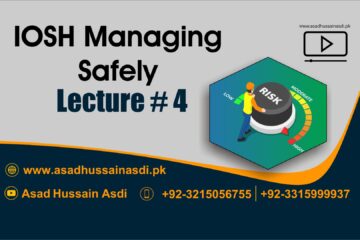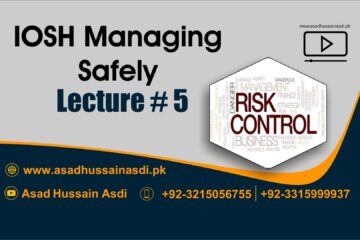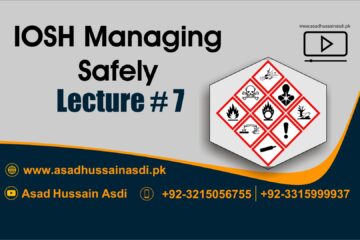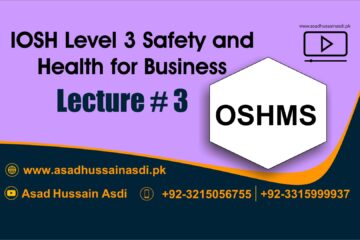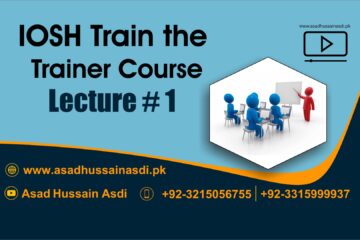ProQual Level 4 Award in Managing Risk Behaviour Whilst Supporting Individuals with Age-Related Cognitive Decline Course in Islamabad || Registration Open
Registration Open= +92-3315999937, +92- 3215056755 (WhatsApp Only)
Introduction
The Level 4 Award Managing Risk Behaviour Whilst Supporting Individuals with Age-Related Cognitive Decline aims to enable candidates to develop essential knowledge and skills around supporting individuals who present behavioural challenges arising from Alzheimer’s Disease and Related Dementias.
The awarding organisation for the qualification is ProQual Awarding Body and the regulatory body is the Office of Qualifications and Examinations Regulation (Ofqual). The specification for the qualification has been approved by the Welsh Government for use by centres in Wales and by the Council for the Curriculum Examinations and Assessment (CCEA) for use by centres in Northern Ireland. The qualification has been accredited onto the Regulated Qualifications Framework (RQF).
|
Qualification title |
ProQual Level 4 Award in Managing Risk Behaviour
Whilst Supporting Individuals with Age-Related Cognitive Decline |
| Ofqual qualification number | 600/8192/2 |
| Level | Level 4 |
| Total qualification time | 50 hours |
| Guided learning hours | 15 |
|
Assessment |
Pass or fail
Internally assessed and verified by centre staff External quality assurance by ProQual verifiers |
| Qualification start date | 1 March 2013 |
| Qualification end date |
Entry Requirements
There are no formal entry requirements for this qualification.
Centres should carry out an initial assessment of candidate skills and knowledge to identify any gaps and help plan the assessment.
Qualification Structure
Candidates must complete the Mandatory unit.
| Mandatory Units | |||
| Unit Reference
Number |
Unit Title | Unit
Level |
GLH |
| L/504/7079 | Managing risk behaviour when supporting individuals with
cognitive related challenge |
4 | 15 |
Centre Requirements
Centres must be approved to offer this qualification. If your centre is not approved please complete and submit form ProQual Additional Qualification Approval Application.
Staff
Staff delivering the qualification must be appropriately qualified and occupationally competent.
Assessors/Internal Quality Assurance
For each competence-based unit centres must be able to provide at least one assessor and one internal quality assurance verifier who are suitably qualified for the specific occupational area. Assessors and internal quality assurance verifiers for competence-based units or qualifications will normally need to hold appropriate assessor or verifier qualifications, such as:
- Award in Assessing Competence in the Work Environment
- Award in Assessing Vocationally Related Achievement
- Certificate in Assessing Vocational Achievement
- Award in the Internal Quality Assurance of Assessment Processes and Practices
- Certificate in Leading the Internal Quality Assurance of Assessment Processes and Practices
Support for Candidates
Materials produced by centres to support candidates should:
- enable them to track their achievements as they progress through the learning outcomes and assessment criteria;
- provide information on where ProQual’s policies and procedures can be viewed;
- provide a means of enabling Internal and External Quality Assurance staff to authenticate evidence
Assessment
Candidates must demonstrate the level of knowledge and skill described in the unit. Assessment is the process of measuring a candidate’s knowledge, understanding and performance against the standards set in the qualification.
Each candidate is required to produce evidence which demonstrates their achievement of all of the learning outcomes and assessment criteria for each unit.
Evidence can include: – assignments/projects/reports
- worksheets
- portfolio of evidence
- record of oral and/or written questioning
- candidate test papers
Learning outcomes set out what a candidate is expected to know, understand or be able to do.
Assessment criteria specify the standard a candidate must meet to show the learning outcome has been achieved.
There must be valid, authentic and sufficient for all the assessment criteria. However, one piece of evidence may be used to meet the requirements of more than one learning outcome or assessment criterion.
Learning outcomes and assessment criteria for the qualification can be found from page 7 onwards.
Internal Quality Assurance
An internal quality assurance verifier confirms that assessment decisions made in centres are made by competent and qualified assessors, that they are the result of sound and fair assessment practice and that they are recorded accurately and appropriately.
Adjustments to Assessment
Adjustments to standard assessment arrangements are made on the individual needs of candidates. ProQual’s Reasonable Adjustments Policy and Special Consideration Policy sets out the steps to follow when implementing reasonable adjustments and special considerations and the service that ProQual provides for some of these arrangements.
Centres should contact ProQual for further information or queries about the contents of the policy.
Results Enquiries and Appeals
All enquiries relating to assessment or other decisions should be dealt with by centres, with
reference to ProQual’s Enquiries and Appeals Procedures.
Certification
Candidates who achieve the requirments for qualifications will be awarded:
- A certificate listing the units achieved, and
- A certificate giving the full qualification title –
ProQual Level 4 Award in Managing Risk Behaviour Whilst Supporting Individuals with Age-Related Cognitive Decline
Claiming certificates
Centres may claim certificates for candidates who have been registered with ProQual and who have successfully achieved the requirements for a qualification. All certificates will be issued to the centre for successful candidates.
Replacement certificates
If a replacement certificate is required a request must be made to ProQual in writing. Replacement certificates are labelled as such and are only provided when the claim has been authenticated. Refer to the Fee Schedule for details of charges for replacement certificates.
Learning Outcomes and Assessment Criteria
- Have a understanding of dementia, Alzheimer’s and other age-related cognitive conditions
- Understand the importance of person- centred care in the delivery of care and support for people with age-related cognitive decline
- Understand why risk behaviour occurs and know the appropriate approaches and interventions to avoid, decelerate and de- escalate crisis situations
- Understand how communication impacts positively and negatively on an individual’s behaviour
- Understand how the cognitive disabilities model impacts on the theoretical underpinnings of current theories and approaches
- Explain the ‘best ability to function’ perspective as an approach for supporting people with age-related cognitive conditions
- Describe the characteristics of age-related cognitive conditions
- Describe the components of cognition and how cognitive ability impacts on function and ability
- Define person-centred care in the delivery of care and support for people with age-related cognitive decline
- Explain how person-centred care differs from task-centred care
- Identify the typical behaviours that indicate an escalation towards risk behaviour
- Take appropriate measures to avoid, decelerate and or de-escalate crisis situations
- Describe the theories of Retrogenesis and Allen’s Cognitive Disabilities Model and their application to the support of people with age- related cognitive decline
- Describe how age-related cognitive decline impacts on a person’s behaviour and ability to function
- Explain how age-related cognitive decline impacts on a person’s behaviour and ability to function
- Explain how para-verbal communication can influence the outcome of a potential crisis
- Apply verbal communication techniques and effective listening skills to help decelerate and/or de-escalate crisis situations
- Explain the importance of effective listening
- Identify key approaches associated with empathic listening
- Describe how their own behaviour and responses to behaviour are affected by the fear and anxiety of individuals with age-related cognitive decline
- Understand how the Crisis Development Model can be used to support people with age-related cognitive decline
- Be able to reduce or manage risk behaviour by using suitable and acceptable physical interventions
- Explain how they can help maintain professional attitudes in difficult interventions
- Explain how precipitating factors for crisis behaviour impact on staff and service users
- Identify the environmental changes, staff communication strategies and responses that can be adjusted to promote person-centres dementia care
- Explain the risks of restraint when used to manage risk behaviour associated with age- related cognitive decline
- Evaluate the importance of professional values in ensuring the care, welfare, safety and security of all those involved in crisis situations
- Respond to risk behaviour using non-verbal, verbal and physical approaches
- Use appropriate physical interventions to reduce or manage risk behaviour
- Know ways to support the families of people 8.1 Explain how person-centred approaches can be
with dementia
enhanced in the care of people with age- related cognitive conditions
- Describe ways of improving communication between staff and families
- Describe ways to advance a culture of care which enhances professional values and ensures the care, welfare, safety and security of all those involved
Assessment
There must be valid, authentic and sufficient for all the assessment criteria. However, one piece of evidence may be used to meet the requirements of more than one learning outcome or assessment criterion.
Registration Open= +92-3315999937, +92- 3215056755 (WhatsApp Only)











